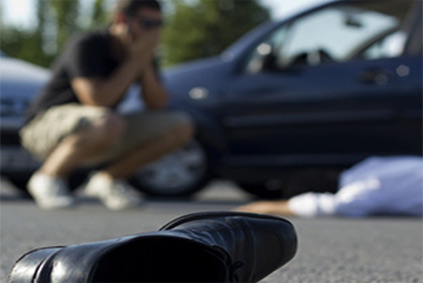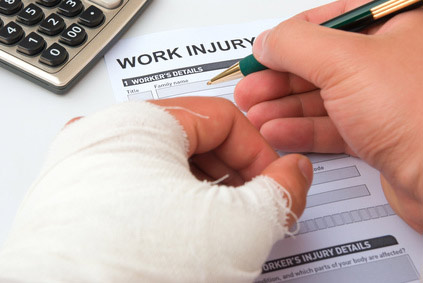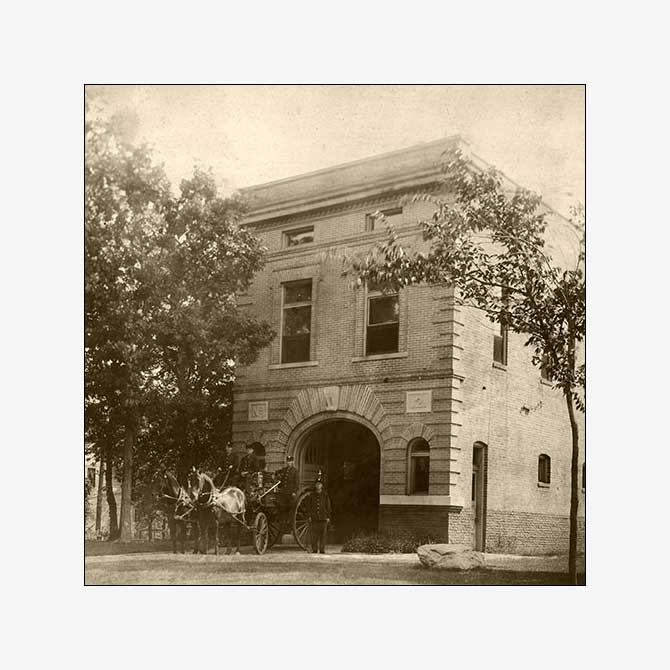Do you need help with a personal injury or workers' compensation case?
Statewide Practice Areas

Understanding Your Personal Injury Claim
The Learn more about Workers' Compensation Law section highlights some of the main points outlined in our Workers' Compensation Claim Guide. You can download the complete guide here.
Learn more about Personal Injury Claim
We created this information to help you become familiar with how a personal injury case is generally handled, and to tell you how you can help your attorney to obtain justice in your case. Here are some general conditions that ordinarily occur in a personal injury case. Some of these things you may already know, but at the same time, you may not be familiar with all of them.
Investigation of Your Case
">An adequate and complete investigation of your case is essential to its success. Insurance companies hire people specifically to investigate claims. They do this to limit their exposure on claims. Therefore, it is most important that the facts of your claim be examined and preserved to protect your rights.
Usually when an attorney takes on a case, they establish an investigation file after the first interview. The file is then assigned for investigation under the supervision of an attorney. In most cases, an attorney obtains a complete police report, interviews the police officer, obtains statements from witnesses, photographs vehicles involved, photographs the accident site, and attempts to assemble all of the information that is available regarding how the accident occurred and who was responsible. Customarily, lawyers send letters requesting a report regarding the client's medical treatment. In most cases, a lawyer personally interviews the attending physician prior to the time a request for a written report is sent regarding a client's medical condition.
In an actual lawsuit papers are filed with the court, and there is a plaintiff and a defendant. The plaintiff is the injured person(s) and the defendant is the person(s) who injured you. The papers state the nature of the claim of the plaintiff. Generally, the defendant then has 30 days to file a response. In the response, the defendant states the nature of their claim in the suit.
New clients often ask, "How much are we going to sue for?” In almost all cases, a specific amount is not requested when the suit is filed. It is usually too difficult to tell what the actual value of the case is right when the case is filed. Usually, “fair and reasonable damages” are sought.
Since the value of the case depends on accurate documentation, clients should send their attorney monthly reports. These reports are used to keep the attorney abreast of what is going on in the clients’ lives. This documentation of the client's recovery process is extremely important.
Under the laws of Iowa there are no longer secrets in lawsuits. The defendant in a case is entitled to ask reasonable questions about the accident and how injuries have affected the injured person and their family. An attorney's policy should be to answer all legitimate requests by the defendant, fully and truthfully.
Once a lawsuit has commenced, the plaintiff and the defendant have the right to obtain information about the case by depositions and/or interrogatories.
You will be notified of the decision of the jury on your case. If you are not happy with the results, you must tell your attorney immediately. There is a 10-day time limit from the date of the jury verdict to file a Motion for a New Trial. There is also a 30-day time limit from the date of the jury verdict to appeal to the Supreme Court. It is your responsibility to notify your attorney if you want to file a Motion for a New Trial or to appeal your case. Remember, the defendant in your case also has the right to appeal if they are not satisfied with the results.
One of the first things an insurance company wants is a list of "special damages" which you have incurred as a result of your injury. Special damages mean the out-of-pocket expenses such as doctor bills, hospital bills, other medical bills, loss of income or earnings that have occurred as a result of the accident, and any property damage that resulted from the accident. You should be as complete as possible when compiling this information.
It is equally important for you to keep track of how the injury has affected your life, and the life of your family. It is advisable to keep a diary of daily events so they can be remembered at a later date.
- How long do I have to bring my lawsuit?
- By law, a claim must be filed with the court within a prescribed time period. If the claim is not filed within the time limit, it can be barred forever. There are many rules in the state of Iowa that control the time periods that you have in which to bring a case. Ordinarily, two years is the proper time period. However, in certain situations the time limit can be as low as six months. You should make sure to discuss this with your attorney.
- What do I do about bill collectors?
- Because you have been injured and are not able to work, you will find that many creditors will be calling you on the phone requesting payment for medical bills. Although attorneys cannot protect you completely, they should discuss your situation with any bill collector or creditor who calls. Many times an attorney will be able to secure an agreement from these people to leave you alone until the claim is resolved.
- Can my own negligence affect the value of my claim?
- The answer is yes. If a jury would find that you were negligent, it may reduce the value of your claim. Under Iowa law, the fault of each party is considered. This is called "comparative fault.” Under present rules governing comparative fault, you may be as much as 50 percent at fault and still recover 50 percent of your damages. If, however, your fault is greater than 50 percent, you will not be able to recover your damages. You should discuss the implications of this with your attorney.
- What if the other driver in an automobile accident is uninsured?
- Unfortunately, many times someone who injures another does not carry insurance. However, this does not necessarily mean that there is no money available for your damages. If your vehicle was insured at the time of the accident, you should have "uninsured motorists” and "underinsured motorist” coverage.
Learn more about Workers’ Compensation Law
This content has been prepared by Drew Law Firm, P.C. to provide you with some general information regarding your rights under the Iowa Workers’ Compensation Law and to advise as to how you can help your attorney with your workers’ compensation case.
Under Iowa law, any employee who is injured on the job, or while engaged in activities related to his or her job, may be entitled to workers’ compensation benefits. You need not be a United States citizen to be entitled to workers’ compensation benefits.
Whether you are entitled to workers’ compensation benefits can sometimes involve complex legal and medical/legal analysis. Your attorney will be happy to discuss this with you. The definition of what falls within the category of an “injury” is very broad and includes almost any health impairment (i.e., back injuries, neck and shoulder injuries, broken bones, heart attacks, diseases, abnormal psychological conditions, etc.).
If you have been injured while at work or on the job, the best way to protect your rights is to contact an experienced workers' compensation or personal injury lawyer. A lawyer will be able to help file a workers' compensation claim. A lawyer will also be able to determine if you should file a lawsuit in addition to or instead of a workers' compensation claim.
Additionally, a lawyer will be able to determine other types of compensation to which you may be entitled. For example, if someone other than your employer or a co-worker was at least partly to blame for your injury, you may be able to file a liability insurance claim against that person or business.
You may be eligible for workers' compensation benefits for a work-related injury that fits into one of the categories below:
- Pre-existing Conditions - These types of injuries are unrelated injuries that you already had, which are aggravated or exacerbated by your work. One example is a back injury, even if you don't notice the pain caused by the injury until later.
- Injuries on-the-job - This category includes injuries caused by your work activities and your company's facilities (such as a chair in the company break room). Injuries during work time also include those that occur during coffee breaks, on your lunch break, and during work-sponsored activities (for example, a company picnic).
- Exposure to Toxins - This class includes injuries that results from exposure to toxins in chemicals from normal working conditions. An example of this type of injury is lung cancer, if you can show that it was caused by exposure to those on-the-job toxins.
- Physical and Mental Strain - This category includes physical and mental strain that is a result of increased work duties or work-related stress. In some states, a disabling mental condition that is a direct result of work demands or constant harassment from a supervisor may also be included in this category.
- Report the Injury to Your Employer
- If it's possible, report your injury in writing and keep a copy of that report for your personal records.
- It is important to report your injury as soon as possible, both for acute injuries such as accidents, and those injuries that develop gradually. Failure to give timely notice of a work injury to your employer may deprive you of your right to compensation. Your lawyer will help you evaluate deadlines applicable to your claim.
- File Your Workers' Compensation Claim as Soon as Possible
- If your injury entitles you to workers' compensation benefits, file your claim as soon as you can. Waiting to file could lead to problems or delays in receiving your benefits. Reporting your injury and filing your claim quickly is the best way to make sure that you start receiving benefits quickly.
- If Your Claim Is Disputed
- If there is a dispute regarding your claim, you can contact your state's workers' compensation commissioner's office. You may also want to contact a lawyer experienced in the workers' compensation system.
The workers' compensation system provides compensation for employees who were injured at work or suffered an illness because of their job. If the injury is great enough to result in death, workers' compensation benefits are paid to the employee's surviving spouse and children or other dependents.
In most states, employers are required to purchase workers' compensation insurance from an insurance company. In some states, large companies are allowed to self-insure, or act as their own insurance company. Small companies, those with fewer than three or four employees, may not be required to have workers' compensation insurance. When an employee is injured and files a workers' compensation claim, this claim is then filed with the insurance company, or with the self-insuring employer, who pays the workers' compensation benefits. These benefits may include medical and disability compensation, depending on your state.
If an employer offers a temporarily, partially disabled employee temporary work, the offer must be communicated in writing, including details of lodging, meals, and transportation.
- What is the amount of benefits?
- The amount of weekly payments is dependent upon the amount of your gross earnings at the time of your injury, and the number of deductions for federal and state income tax that you would be entitled to if you claim the maximum number of exemptions to which you were entitled. We will check to make sure you are receiving compensation at the appropriate rate.
- How much are we going for?
- One of the more frequent questions asked by new clients is, “How much are we going to sue for?” Under the Commissioner’s Rules, we do not ask for a specific amount, but ask only that the Commissioner grant the relief sought. Ask your attorney to explain the type and amount of benefits requested.
- What happens after a worker's compensation claim is brought?
-
Under the laws of Iowa, there are no longer secrets in lawsuits. The defendant in a case is entitled to ask reasonable questions about the accident and how the injuries have affected the injured person. An attorney’s policy should be to answer all legitimate requests from the defendant fully and truthfully.
Once a lawsuit has been started, the claimant and the defendant have the right to obtain information about the case by using depositions and interrogatories. Discovery depositions involve the taking of verbal testimony from a person while under oath. If a client’s deposition is taken, the attorney is always present. A court reporter who takes down the sworn testimony is present. Before a deposition of a client, their attorney will take all the time necessary to go over the types of questions that will be asked so there are no surprises.
Interrogatories are written questions which the attorney for either side may submit to the other. They have to be answered in a prompt manner, usually within 30 days. When interrogatories are sent to an attorney for clients to answer, the attorney expects that they will be returned promptly. Any delay in returning these questions will only delay the lawsuit.
Medical examination: The defendants have a right to have you examined by a physician of their choice, within reason. The insurance company will pay the costs of this examination and a report will be given to the insurance company regarding the doctor’s findings and opinions concerning your injuries. Workers have a right to a rebuttal examination by an independent doctor. The cost of that examination may be reimbursed by the employer if the workers’ claim is deemed compensable.
-
- What happens at the Workers' Compensation Hearing?
- After the suit has been filed, the hearing date will usually be within 9 to 16 months from the date the Petition was filed, but this sometimes takes much longer. Most claims are settled before the date of the hearing. You should ask your attorney specific questions about the possibility of your case settling before hearing.
- A hearing with the Iowa Workers’ Compensation Commissioner is an informal proceeding. The Deputy Commissioner will hear all of the evidence and read the medical reports or medical depositions. From all the testimony the Deputy hears, and the evidence introduced, the Deputy will determine the amount of benefits to which you are entitled. This decision is not rendered at the time of the hearing.
- What happens after the Deputy makes a decision on my case?
- You will be notified of the Decision the Deputy makes on your case. If you are not satisfied with the results, you must tell your attorney immediately. Claims can be appealed. After a ruling of a Deputy Commissioner, there is a time limit of 20 days from the date of the Decision in which to appeal. If the initial appeal is unsuccessful, there is a 30-day time limit to file another appeal. It is your responsibility to notify your attorney if you want to appeal your case. Remember, the defendant in your case also has the right to appeal if they are not satisfied with the results.
- Am I entitled to mileage reimbursement?
- If your employer has accepted liability, you are entitled to be paid mileage (approximately 55 cents/mile) for your appointments to and from the authorized physician, physical therapists, healthcare facilities, and the approved pharmacy to obtain prescriptions. You will need to document who you saw, the date of the appointment or trip, and the round trip mileage. We can process that claim for you if the information is sent to us in writing. Additionally, if the authorized physician documents that you are unable to drive, a claim can be made for the lost wages and mileage for the person taking you to appointments. You should consult with your attorney regarding these issues.

Workers' Compensation Claim Guide
The Learn more about Workers' Compensation Law section highlights some of the main points outlined in our Workers' Compensation Claim Guide. You can download the complete guide here.

Tom Drew
Attorney
Tom was born and raised in Hampton, Iowa and comes from a family of attorneys. Tom's father was a general practice attorney in Hampton, Iowa, for almost 50 years. Tom's older brother, Jim, was Governor Tom Vilsack's first appointment to the District Court bench.
Tom has been married to Julie (Steidl) Drew since 1984. Julie is recently retired from fulltime work as a Chef instructor in the Culinary Arts Department of DMACC. Tom and Julie's son and daughter are graduates of the University of Iowa. Their daughter obtained her Master’s Degree from DePaul University while working fulltime, and currently works as a Corporate Trainer for a Retirement Financial Service Company in West Des Moines. Their son obtained his MBA from the University of Iowa while working fulltime, and currently brokers real estate development ground in central Iowa.
When not working, Tom enjoys flying airplanes and is an Airline Transport Rated Pilot and a Certified Instrument Flight Instructor. He currently owns and flies a Beechcraft 58 Baron and a Piper Cherokee 140. Tom also enjoys spending time with his family, traveling, watching independent films and playing his bass guitar.
Education
-
Drake University Law School
J.D., Law
1985 – 1988 -
University of Iowa
BBA, Finance
1980 – 1984
Honors & Awards
- President, Iowa Trial Lawyers Association (Iowa Association for Justice) 2005
- President, Iowa Chapter American Board of Trial Advocates (ABOTA 2011)
- Chair, Litigation Section Iowa State Bar Association 2007-2008
- President, American Inns of Court (C. Edwin Moore Chapter) 2004-2005
- Fellow, American College of Trial Lawyers
- President, American Academy of ADR Attorneys (2014)
- Appointed by Iowa Supreme Court to the Civil Justice Reform Task Force Steering Committee 2010
- Elected to Judicial Nominating Commission District 5C (current)
- Executive Committee-Iowa Board of Medicine, service 2007-2012
- Fellow, Iowa Academy of Trial Lawyers
Why should you contact Drew Law Firm?
If you have been injured in an accident at work or by the fault of another person or company, let Drew Law Firm take care of it for you. Attorney Tom L. Drew has practiced primarily in personal injury and workers' compensation. Tom has represented clients who have suffered from catastrophic injury, construction accidents, motor vehicle accidents, premises liability, trucking accidents, wrongful death, and motorcycle accident claims, for over 36 years.
He has been lead trial counsel in personal injury cases throughout the state. Tom has handled cases against most major insurance defense firms in Iowa. Tom L. Drew is respected by his peers and has obtained an AV (the highest) rating as published in Martindale-Hubbell™. He also served as President of the C. Edwin Moore chapter of the American Inns of Court, in 2005, which is comprised of members of the bench and bar.
Office Dogs
We love our dogs at the Drew Law Firm! Here are our dogs past and present.
Two prior office dogs have gone to the big kennel in the sky:
Minnie (Kind of a Benji Mix ARL) was our first office dog back before we knew how it worked. We refer to Minnie as the most loved, worst dog ever.
Verdell (Dachshund and Beagle mix ARL) always liked what he liked and didn’t bother that much with others. He might let you pat him on the head, but don’t think it is going to get you anything.
Current Office Dogs:
Paco (Blue Chihuahua) is very territorial and loves Barb, but doesn’t do that well around others. He has arthritis now and yelps quite a bit for no apparent reason. He has bought himself a ticket home for the most part.
Stanley (Golden Doodle ARL) comes to office every day and generally stays upstairs. If you pet him you have a friend for life. Not a mean bone in his body. He is a human in a dog suit.
Fire Station Memorabilia
The Firehouse was built in 1901 and closed by the city in 1976. Old No. 12 started out with horse-drawn wagons; the station is reputed to have served as the home to two popular horses in the region, both named Jack, who were known for their speed. The horses were stabled in the rear of the building. Two or three Firemen were stationed in No. 12 at any given time. The original fire pole and stained glass window are currently on display.























